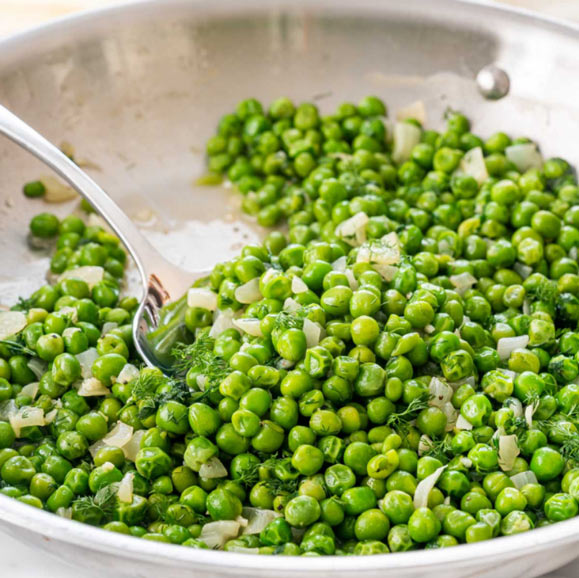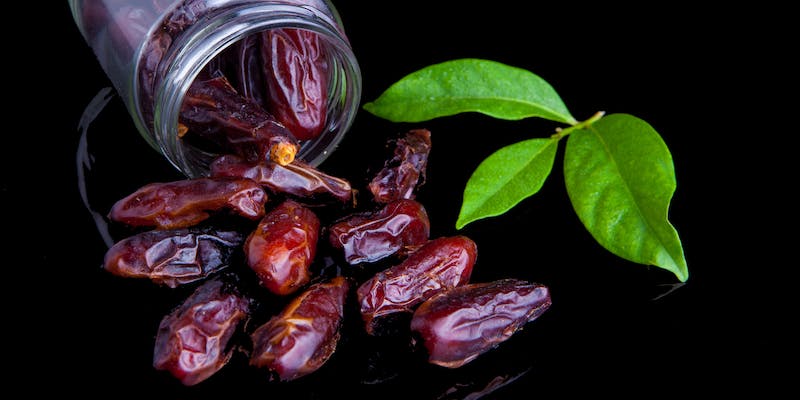My love of healthy and nutritious foods has led me to develop a bias and fascination with peas. The tiny but colorful green legumes not only add flavor to our meals but also have multiple health benefits.

This guide will discuss the nutritional value of peas, their health benefits, and how to make a meal from peas.
Nutritional Profile of Peas
Peas have vital nutrients which help in maintaining good health and wellness. A cup of cooked peas has a total of about 125 calories, eight grams of proteins, twenty-two grams of carbohydrates, and eight grams of fiber.
In addition, peas are a good source of iron, manganese, folate, and vitamins A, C, and K. The antioxidants present in this fruit also help guard against oxidative stress caused by free radicals. Peas are also low in fat and have zero cholesterol, making them a good choice for weight control and heart health.
In-depth Exploration of Pea Nutrition Facts
Let's look at the precise nutrients that peas contain. Bone development and blood coagulation depend on vitamin K. This vitamin is present in considerable concentrations in peas. More than 40% of the daily required dose of vitamin K can be obtained from one cup of boiling peas. In addition, peas are a fantastic source of vitamin C, a potent antioxidant that promotes the production of collagen, the immune system, and the absorption of iron.
Similar to the same cup of peas, there are 8 grams of fiber. Dietary fiber is required for maintaining a sound digestive tract, ensuring normal bowel movement, and averting constipation. In addition to that, the fiber found in peas assists in the regulation of blood sugar, making them good for diabetics and anyone else who wants to control blood sugar.
Health Benefits of Peas
1. Rich in Nutrients
Peas have all kinds of essential vitamins, minerals, and antioxidants. These foods contain many necessary nutrients that are beneficial for health. Intake of peas will ensure that you cater to your daily nutritional needs while gaining natural energy.
2. Improve Blood Sugar Management
The high fiber content in peas delays the entry of sugar into the blood to avoid high blood sugar levels. In essence, this makes peas a good food product for people with diabetes and those who want to maintain stable glucose levels. They also contain several antioxidants that might play a role in managing blood sugar.
3. Supports Digestive Health
Peas contain a lot of fiber; hence, they help promote healthy digestion and avoid constipation. It helps to give weight to the feces which will then enable it to pass easily across the gastrointestinal tract. Eating peas frequently helps keep the gut in good shape and prevents conditions like diverticular disease and irritable bowel syndrome.
4. Supports Heart Health
Peas consist of no fat and are also devoid of any form of cholesterol that is good for the heart. Since they contain a lot of fiber in them, they keep heart diseases at bay by minimizing cholesterol levels in the bloodstream. Moreover, vegetables such as peas may also contain antioxidants that help to fight inflammation and oxidative stress, which may also enhance cardiovascular health.
5. Supports Bone Health
Vitamin K is necessary for strong bones, and peas are a terrific way to get it. Strong and healthy bones are the result of bone mineralization, which is facilitated by proteins that are triggered by vitamin K. Eating peas on a regular basis may be essential for preventing these disorders, which include osteoporosis and fractures.
6. Strengthens the Immune System
Potent antioxidants found in peas include vitamin C, which helps maintain a healthy immune system. White blood cells, which are essential in the fight against infections and diseases, are stimulated by vitamin C. You may strengthen your overall feeling and strengthen your immune system by incorporating peas into your diet.
Incorporating Peas into Your Diet

Now that we know how amazing peas are for our health let's see how we can include them in our everyday menu. Here are ten ideas to get you started:
Salads
Use cooked or raw peas to boost salads when it comes to taste and proteins. These combine excellently with greens, vegetables, cheese, and nuts, bringing up a perfect meal balanced for nutrition and satiety.
Soups and Stews
Thickening peas give a touch of a sweet and earthy tone to such soups and stews. Add these to lentil soup, minestrone, or your best recipe for vegetables for additional nutrients and flavor.
Pasta Dishes
Include peas in pasta-based dishes such as mac & cheese, carbonara, and pesto pasta to add nutrients and flavor. Peas also provide intense color and a touch of saccharinity to these quintessential dishes.
Grain Bowls
Include in your grain bowls cooked or roasted peas for additional protein and textural elements. Pairing peas with grains like quinoa, brown rice, or farro creates a well-balanced and filling plate.
Mashed Peas
Mashed peas cooked with some herbs, spices, and lemon juice are a healthy and tasty side dish. It is this vivid shamrock's color that makes it go well with roast meat and grilled fish or even with a smear of it on whole grain sandwiches.
Roasted Peas
Olive oil, salt, and pepper are rubbed on roasted peas as they prepare a delicious snack or side dish. Peas are indeed much healthier than roasted potatoes, with almost zero guilt when eaten as snacks.
Dips and Spreads
Cooked peas can be mixed with avocado, hummus, or yogurt to come up with a delicious and protein-filled dip or spread. Serve it with whole-grain crackers, salad veggies, or even a sandwich spread.
Omelets and Frittatas
Include cooked peas in omelets and frittatas for high-protein breakfasts/brunches. Peas provide a pleasant taste contrast and balance against the flavor from the eggs.
Smoothies
Use frozen peas to blend with fruits or other nutritious veggies into a delicious, satisfying smoothie. Being mildly flavored, peas go well with other ingredients like spinach, banana, and almond milk to result in a high-nutrition drink.
Desserts
You can hide some vegetables in your pancakes, pancakes, or muffins by adding mashed peas to them. Baked foods such as cakes become enjoyable nutritious meals when they are prepared with peas that provide water and the taste of sweetness.
Conclusion
Finally, peas are not only tasty but also a highly beneficial food. Vitamins, minerals, and antioxidants are rich in nature to help overall health and well-being. Peas provide numerous benefits, such as improving blood sugar management supporting digestive health, and cardiovascular health. The kitchen is their domain, and they can be mixed into almost any dish, starting with salads and soups and going further to pasta and desserts. Therefore, let us release the power of peas and taste their wonderfulness and goodness in our meals today.
With that said, you should try making different dishes with peas now that you are aware of how healthy they are and their nutritional facts. Try some of the good pea recipes you read about and feel the real strength of the peas. Your taste buds and body will appreciate that.







